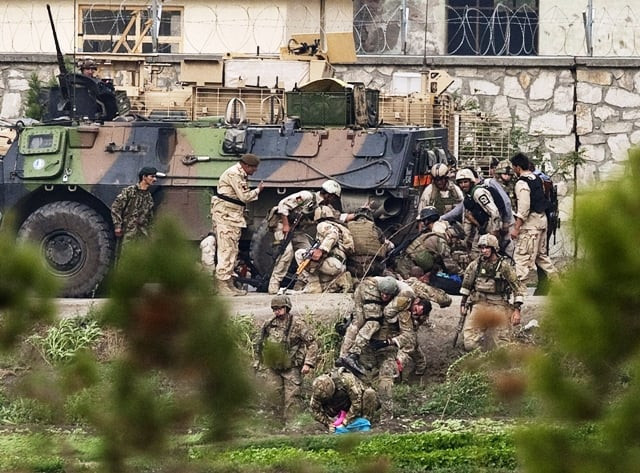Attack in Kabul and beyond
Taking on the Haqqani Network may be a good idea, but the question of ability still lingers.

Attack in Kabul and beyond
In an ideal world, Pakistan would be able and willing to take on and destroy the Haqqani Network but right now they have no incentive to do so. Given that the US has already announced the date from when they begin withdrawing troops from Afghanistan, the Pakistan military is trying to take steps to ensure that they maintain their influence there. Propping up the Haqqani Network to serve our interests in Afghanistan is one such measure. Pakistan fears that India will be the dominant regional power in Afghanistan after the US leaves, and thus sees no qualms in using the Haqqani Network as its proxy. The danger here is that proxies can never be relied on to remain loyal. We supported the rise of the Taliban in Afghanistan so that there would finally be a pro-Pakistan government there, but that did little but garner it international scorn.
Taking on the Haqqani Network may be a good idea, but the question of ability still lingers. Our military is currently engaged in multiple battlefields, taking on the Tehreek-i-Taliban Pakistan and al Qaeda. While it may be desirable to also fight the Afghan Taliban, it would also mean that our troops are stretched too thin. Just as the US now realises that it does not have sufficient troops to pacify and control Afghanistan, so they need to understand that Pakistan, too, is limited by logistics.
Published in The Express Tribune, September 17th, 2011.













COMMENTS
Comments are moderated and generally will be posted if they are on-topic and not abusive.
For more information, please see our Comments FAQ